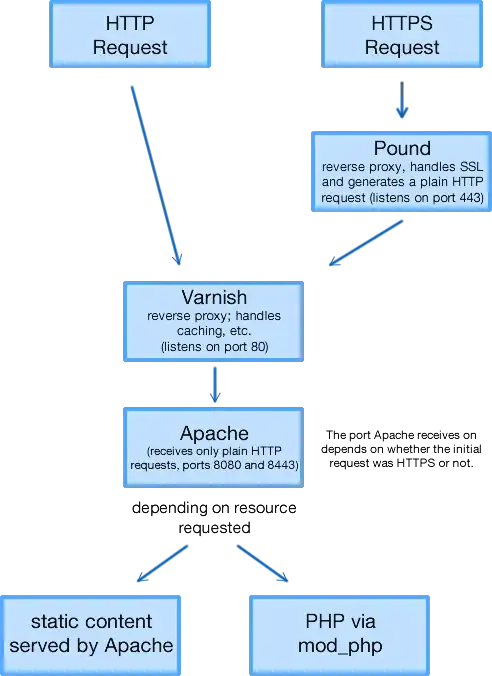I run a web server with multiple users. The machine provides Apache-based virtual hosts to a bunch of users, who can serve static content or use PHP. No other forms of server-side scripting are available.
Here's how a typical request is handled:

HTTPS traffic has its SSL stripped by Pound, which acts as a reverse proxy and forwards the request on to Varnish, which also acts as a reverse proxy, finally forwarding the request on to Apache.
By the time the HTTPS traffic reaches Apache, the protocol, port, and full URL have changed from, say, https://example.com:443/ to http://example.com:8443/. This is a result of all the proxies before Apache.
Is there a way I can trick the PHP scripts into thinking the request came from the original URL, port, and protocol, without modifying the PHP code?
This is important because the users will wish to run Joomla, WordPress, and other PHP-based CMSes which detect the URL and cause trouble with redirects, links, etc.
I could probably patch mod_php and build it from source with the necessary changes for my specific scenario, but is there a better way to give the PHP scripts fake environmental variables, perhaps via some setting in php.ini?